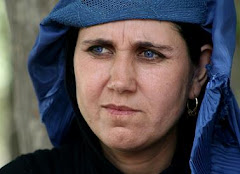Amnesty International has urged NATO leaders to protect human rights and ensure security for the people of Afghanistan as they prepare for the 2010 NATO Lisbon Summit. 
The organization has sent letters to NATO leaders urging them to improve accountability for Afghan and international military forces, tackle arbitrary detention and torture and ensure human rights guarantees during any talks with the Taleban.
"As NATO begins to discuss its withdrawal from Afghanistan, it's crucial to explain to the Afghan people exactly how the international community will follow through on its promise to protect and promote their human rights," said Sam Zarifi, Amnesty International's Asia-Pacific Programme Director.
"These promises seem about to be discarded without fanfare, but the need for improving the human rights situation in Afghanistan is even more urgent now."
NATO Secretary General Anders Fogh Rasmussen has said that the 2010 Summit will mark a fundamentally new phase in NATO's operation in Afghanistan, as Allies will launch the process by which the Afghan government will take the lead for security throughout the country.
In letters to NATO leaders, Amnesty International has identified three concrete steps to improve governance, uphold the rule of law and human rights that would enhance security and stability for the Afghan people.
1. Improve the accountability of international and Afghan military and security forces
The Taleban and other insurgent groups are responsible for the vast majority of civilian casualties in Afghanistan, but that does not excuse the continuing lack of accountability and compensation for casualties caused by NATO and Afghan forces.
The current lack of accountability fuels and fosters resentment among Afghans that international forces are above the law and unaccountable for their actions, particularly when it comes to civilian casualties.
NATO continues to lack a coherent, credible mechanism for investigating civilian casualties. Non-binding guidelines adopted in June 2010 by NATO regarding civilian compensation need to be implemented as part of the existing rules of engagement.
2. Ensure no arbitrary detention or transfers to torture
The United States continues to arrest and detain hundreds of Afghans without proper judicial process. NATO countries continue to hand over detainees to the Afghan intelligence agency, National Directorate for Security (NDS), which has record of perpetrating human rights violations, with impunity.
The increase in the scope of fighting in Afghanistan as a result of the troop surge earlier this year is likely to lead to a rise in the number of people detained. The US government should immediately grant all detainees held by US, whether in Bagram, Guantánamo Bay or any other US detention facility, access to legal counsel, relatives, doctors, and to consular representatives, without delay and regularly thereafter.
The Afghan government and its international partners should seek mechanisms to ensure fair trials for those in detention, including the option of mixed tribunals to try those apprehended in counter-insurgency operations by either Afghan or international forces.
3. Guarantee human rights protections during reconciliation talks with the Taleban
Amnesty International calls on delegates to the NATO Summit to ensure that human rights, including women’s rights, are not traded away or compromised during any political process, including reconciliation talks with the Taleban in Afghanistan and that, in line with the demands of UN Security Council Resolution 1325 on Women, Peace and Security, Afghan women are meaningfully represented in the planning stages and during the reconciliation talks.
"The implementation of these three steps would help signal that the interests of the Afghan people are the focus of the NATO governments and the international community," said Sam Zarifi.
The NATO Summit will convene in Lisbon on 18-19 November 2010. The Summit provides members with the opportunity to evaluate and shape the strategic direction for NATO activities, launch major new initiatives and forge partnerships with non-NATO countries. There have only been 24 Summits since NATO was established in 1949.
Showing posts with label Human rights. Show all posts
Showing posts with label Human rights. Show all posts
Monday, November 22, 2010
NATO summit must protect basic human rights in Afghanistan
ارسال شده توسط
Group blogger & Seerat Basir
در
9:58 AM
0
نظرات
 Email This
BlogThis!
Share to X
Share to Facebook
Email This
BlogThis!
Share to X
Share to Facebook

برچسبها:
Amnesty for Afghanistan,
Human rights,
NATO
Thursday, January 28, 2010
Afghanistan: Human rights must be guaranteed during Taleban talks
Human rights, including women’s rights, must not be traded away or compromised during any reconciliation talks with the Taleban in Afghanistan, Amnesty International said on the eve of a London conference set to discuss deteriorating security conditions in the country.
Afghan President Hamid Karzai, UN Secretary General Ban Ki-Moon, other leaders and foreign ministers are to discuss security arrangements in Afghanistan for the next two years, including reconciliation programmes to reintegrate so-called moderate elements of Taleban.
"Any discussions with the Taleban must include clear commitments that they will respect and promote the rights of the Afghan people," said Sam Zarifi, Amnesty International's Asia-Pacific director.
“The Taleban established a terrible record of violating human rights during their rule and they have done nothing since then to indicate they will act differently if they return to power.”
"The policymakers gathered in London this week have to show that they will not sacrifice the well-being of the Afghan people at the altar of political and military expediency."
Similar deals with the Taleban in neighbouring Pakistan led to increased human rights violations in areas under Taleban control and a significant escalation in conflict and insecurity.
The Afghan government and insurgent groups must both adhere to Afghanistan’s obligations under international human rights law and domestic law, Amnesty International said.
The Taleban and other insurgent groups in Afghanistan have shown little regard for human rights and the laws of war, deliberately targeting civilians, launching indiscriminate suicide attacks in which civilians are killed and engaging in the wholesale destruction of girls’ education.
According to UN figures, the Taleban were responsible for two thirds of the more than 2400 civilian casualties in Afghanistan last year, the bloodiest year yet since the fall of the Taleban.
In areas under their control, the Taleban have severely curtailed the rights of girls and women, including the denial of education, employment, freedom of movement and political participation and representation.
Afghan civil society groups, in particular women's groups, have voiced serious alarms about the prospect of ceding any type of political control to the Taleban.
“Diplomatic efforts to resolve the conflict are a positive step forward,” said Sam Zarifi, “but the rights of the Afghan people must never be negotiated away.
“It is our experience that peace without justice or human rights is not real peace and could ultimately lead to further conflict.”
Afghan President Hamid Karzai, UN Secretary General Ban Ki-Moon, other leaders and foreign ministers are to discuss security arrangements in Afghanistan for the next two years, including reconciliation programmes to reintegrate so-called moderate elements of Taleban.
"Any discussions with the Taleban must include clear commitments that they will respect and promote the rights of the Afghan people," said Sam Zarifi, Amnesty International's Asia-Pacific director.
“The Taleban established a terrible record of violating human rights during their rule and they have done nothing since then to indicate they will act differently if they return to power.”

"The policymakers gathered in London this week have to show that they will not sacrifice the well-being of the Afghan people at the altar of political and military expediency."
Similar deals with the Taleban in neighbouring Pakistan led to increased human rights violations in areas under Taleban control and a significant escalation in conflict and insecurity.
The Afghan government and insurgent groups must both adhere to Afghanistan’s obligations under international human rights law and domestic law, Amnesty International said.
The Taleban and other insurgent groups in Afghanistan have shown little regard for human rights and the laws of war, deliberately targeting civilians, launching indiscriminate suicide attacks in which civilians are killed and engaging in the wholesale destruction of girls’ education.
According to UN figures, the Taleban were responsible for two thirds of the more than 2400 civilian casualties in Afghanistan last year, the bloodiest year yet since the fall of the Taleban.
In areas under their control, the Taleban have severely curtailed the rights of girls and women, including the denial of education, employment, freedom of movement and political participation and representation.
Afghan civil society groups, in particular women's groups, have voiced serious alarms about the prospect of ceding any type of political control to the Taleban.
“Diplomatic efforts to resolve the conflict are a positive step forward,” said Sam Zarifi, “but the rights of the Afghan people must never be negotiated away.
“It is our experience that peace without justice or human rights is not real peace and could ultimately lead to further conflict.”
ارسال شده توسط
Group blogger & Seerat Basir
در
7:20 AM
0
نظرات
 Email This
BlogThis!
Share to X
Share to Facebook
Email This
BlogThis!
Share to X
Share to Facebook

برچسبها:
Amnesty for Afghanistan,
Human rights,
women’s rights

.jpg)



